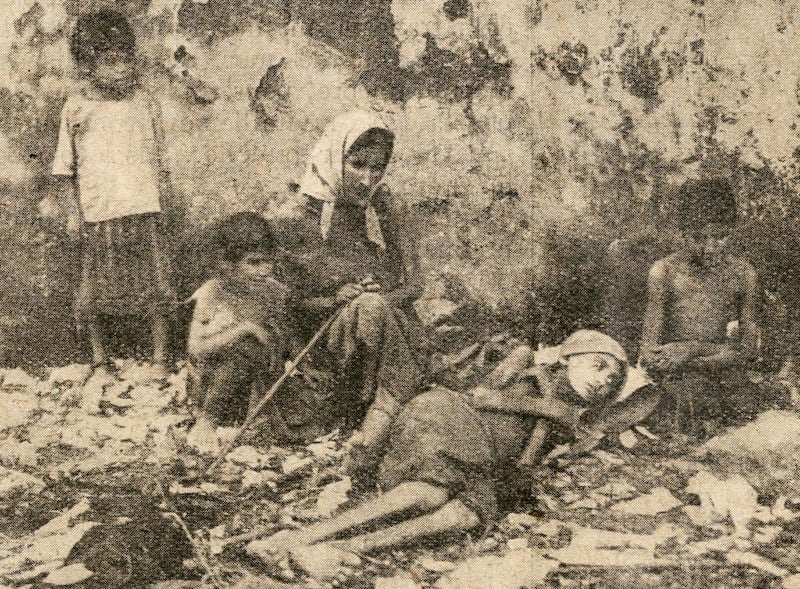Around this time a hundred years ago, people in what was then Greater Syria were struggling to find something we all take for granted – food.
As I reported for this newspaper’s Focus section yesterday, during the Great Famine of 1915 to 1918, more than 500,000 people died and between 100,000 and 200,000 of them were in Mount Lebanon. The American Red Cross estimated the toll at 250,000.
Unless one asks specifically, the children and grandchildren of the affected families rarely talk about it. That includes my own family. One relative said only this: “It was a bad time. People said they would eat once a day, but not always. There was not much food.”
Who wants to revisit a time when people were so hungry that some ate cats, dogs, rats and even each other? An oft-repeated account is that of a priest who said a man confessed to him that he had eaten his own children.
“In the streets of Beirut and in some Lebanese villages, I saw children, women and men pick up watermelon and lemon peel from the mud to eat them. With my own eyes, I saw lemon peel and mud in the guts of those who underwent surgery in one of Beirut’s hospitals,” wrote an American doctor on his return from Beirut in the summer of 1916.
This was one of the least graphic descriptions of the time. Most are filled with stories of how lice covered the skeletal bodies of the starving. The hungry were feared like the plague; some reports said they were not allowed inside places of worship.
The First World War was raging and aid was prevented from coming in. But in the worst of times, heroes emerge. Rosana is a Lebanese folk song that tells of the Italian ship of the same name sent by the Ottomans. It docked in one of Lebanon’s coastal ports with apples and grapes priced very cheap, to compete with Lebanon’s struggling merchants. But merchants from Aleppo arrived and bought up everything from the Lebanese as a gesture of solidarity against the Ottomans. The song thanks the Aleppo merchants and curses the ship.
The Great Famine is a complicated story, but one of its main culprits was the locust. Unless you have seen it with your own eyes, as I did on a road trip to Mecca many years ago, it is hard to imagine locusts wreaking a disaster of “biblical proportions”. I first thought they were dark rain clouds but then heard a deafening buzz, almost like drones. Soon, an army of locusts fell like a thick curtain over the horizon. Many millions of these insatiable creatures, which we had read about in poems and even in the Holy Quran, had come for the farms and crops, as they had for centuries. They used to come to the UAE as well and the last time was 2008, when they invaded Fujairah.
While these creatures strike terror in farmers’ hearts, they are welcomed by some who capture them. They have become a Saudi delicacy. Believed to have medicinal benefits, the locusts are eaten like nuts. They are boiled and dried in the sun for a few days until they turn crisp, a dash of salt is added and they are ready to be eaten.
Today, with all our technology, a locust attack can still take place, leaving the fields barren. I can only imagine the great destruction they caused more than 100 years ago, on fields that were recovering from a drought the previous spring.
Every century is packed with great horrors, genocides and wars. It is difficult to keep up with all those who have died. But for its 100th anniversary, we should honour all those who lost their lives in the Great Famine, many of whom ended up without ceremony and without commemoration in unmarked mass graves, usually outside the towns.
rghazal@thenational.ae
@Arabianmau





